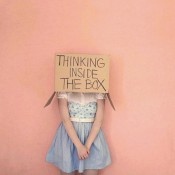 Roadmap to Literacy Books & Courses
Roadmap to Literacy Books & Courses Bay Area Teacher Training
Bay Area Teacher Training Jamie York Books, Resources, Workshops
Jamie York Books, Resources, Workshops Summer Programs - Culminating Class Trips
Summer Programs - Culminating Class Trips The Journey is Everything
The Journey is Everything Caring for All Stages of Life
Caring for All Stages of Life
 Association for a Healing Education
Association for a Healing Education Middle School Science With Roberto Trostli
Middle School Science With Roberto Trostli Immersive Academics and Arts
Immersive Academics and Arts Everything a Teacher Needs
Everything a Teacher Needs Waldorf-inspired Homeschool Curriculum
Waldorf-inspired Homeschool Curriculum Flexible preparation for your new grade
Flexible preparation for your new grade ~ Ensoul Your World With Color ~
~ Ensoul Your World With Color ~ Space speaks. Its language is movement.
Space speaks. Its language is movement. Waldorf Training in Australia
Waldorf Training in Australia Quality Education in the Heartland
Quality Education in the Heartland Great books for Waldorf Teachers & Families
Great books for Waldorf Teachers & Families Train to Teach in Seattle
Train to Teach in Seattle Apply Today: New Cohort Starts Nov. 2025
Apply Today: New Cohort Starts Nov. 2025 Bringing Love to Learning for a Lifetime
Bringing Love to Learning for a Lifetime Transforming Voices Worldwide
Transforming Voices Worldwide Full-Time Teacher Education
Full-Time Teacher Education
Would you like to become a sponsor?
Waldorf News

The Holiday Season: Putting the Genie Back in the Bottle
December 3, 2014
Here comes the Holiday Season. Something to look forward to and something that many parents also dread. "The whole thing is like being hit by a sensory tsunami," commented one mom who was wondering if there was another way to do it. While our kids are living life at such a fever pitch through the school year is it possible to downshift the pace as we move into the holidays? We are now living in a post-excess era. We have seen what excess has done to our economy and to our environment. And hardly a day goes by when we don't see another high profile article about the excess of screen time and digital overload our children are experiencing, most recently, the New York Times 'Growing Up Digital, Wired For Distraction'. What about educational excess? With the national attention of the films Waiting for "Superman" and also Race to Nowhere, many are now questioning if education is also a part of the culture of excess. It's around this time of the year that we are given a chance to make some choices about the pace of life, and it's not easy. Somewhere inside us we know this is a time of "peace on earth", of family connection (maybe those two images don't exactly line up) and yet the pressure to speed up, do more and brave the "sensory tsunami" of Holiday Season shopping and celebration is acute More »

Busy Hands, Busy Brains: Research shows that the most accomplished scientists are likely to be craftspeople
November 29, 2014
As a graduate student in the history of science at Princeton in the 1970s, Robert Root-Bernstein was struck by this common trait of great scientists: They all had many hobbies and interests, and practiced some form of art or craft. Later, as a post-doctoral fellow at the Salk Institute in the 1980s, he saw the same characteristic in a number of multitalented Nobel Laureates whom he got to know personally – people such as biochemist Robert W. Holley, who sculpted figures in bronze, and Roger Guillemin, a pioneer of electronic painting as well as brain hormone research. Today Root-Bernstein is himself a distinguished scientist, renowned for his research in biochemistry and autoimmune diseases, and one of the first recipients of the MacArthur Fellowship, known as the “genius grant.” He’s also a visual artist who believes that art and science come from the same creative place. More »

Inside the Box: People don’t actually like creativity
November 15, 2014
In the United States we are raised to appreciate the accomplishments of inventors and thinkers—creative people whose ideas have transformed our world. We celebrate the famously imaginative, the greatest artists and innovators from Van Gogh to Steve Jobs. Viewing the world creatively is supposed to be an asset, even a virtue. Online job boards burst with ads recruiting “idea people” and “out of the box” thinkers. We are taught that our own creativity will be celebrated as well, and that if we have good ideas, we will succeed. It’s all a lie. This is the thing about creativity that is rarely acknowledged: Most people don’t actually like it. Studies confirm what many creative people have suspected all along: People are biased against creative thinking, despite all of their insistence otherwise. More »

12 Ways Parents Can Protect Their Kids From Too Many Pills: Beware of pill pushing by drug companies and doctors
October 29, 2014
We are turning our kids into pill poppers. The rate of ADHD has tripled in just 20 years - it is now diagnosed in 11 percent of all children aged four to 17 and is medicated in six percent of them. And the percentages get really crazy for teenage boys- 20 pecent are diagnosed and 10 percent are medicated. There is also compelling evidence that most of this "ADHD" comes from careless diagnosis. How else to explain that a child's date of birth is the best predictor of whether he gets the label- the youngest kid in the class is almost twice as likely as the oldest to be diagnosed with ADHD. Misplaced diagnostic exuberance has turned age-appropriate immaturity into a psychiatric disease and treats it with a pill, rather than just letting the kid grow up. The drug companies are delighted. Their annual revenue from ADHD drugs has exploded- it is now 50 times greater than 20 years ago, up to almost $10 billion a year. Wouldn't most of this money be better spent not on pills but rather to reduce class sizes and provide more gym periods so that fidgety kids could blow off steam? More »

Is Google Making Students Stupid? Outsourcing menial tasks to machines can seem liberating, but it may be robbing a whole generation of certain basic mental abilities
October 25, 2014
All of this has unmistakable implications for the use of technology in classrooms: When do technologies free students to think about more interesting and complex questions, and when do they erode the very cognitive capacities they are meant to enhance? The effect of ubiquitous spell check and AutoCorrect software is a revealing example. Psychologists studying the formation of memories have found that the act of generating a word in your mind strengthens your capacity to remember it. When a computer automatically corrects a spelling mistake or offers a drop-down menu of options, we’re no longer forced to generate the correct spelling in our minds. This might not seem very important. If writers don’t clutter their minds with often-bizarre English spelling conventions, this might give them more energy to consider interesting questions of style and structure. But the process of word generation is not just supplementing spelling skills; it’s also eroding them. When students find themselves without automated spelling assistance, they don’t face the prospect of freezing to death, as the Inuits did when their GPS malfunctioned, but they’re more likely to make errors. More »
 Recent Jobs
Recent Jobs
View more jobs »
 Newsletter Archive
Newsletter Archive
 Join the Mailing List!
Join the Mailing List!
Stay Connected…
Each week receive the Waldorf News Weekly Update, full of news, events, and more. Keep abreast of what's happening with Waldorf education.
 RSS Feeds
RSS Feeds